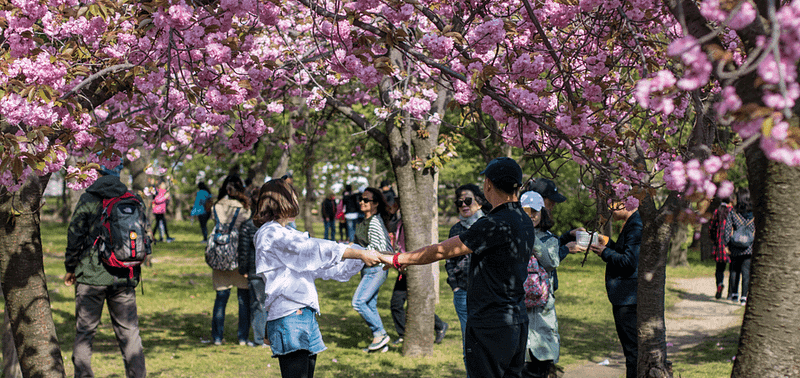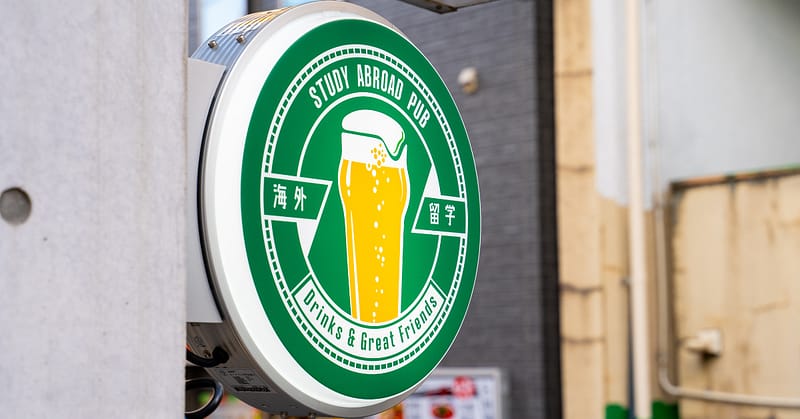When looking to study a new language there are a few options to help you reach your goal. With Japanese, this is no different and we think that the benefits of studying Japanese in Japan by far outweigh many of the other choices.
Of course, this doesn’t mean that you should stop studying Japanese in other ways, but why not think about how you can incorporate a mix of methods to get you speaking Japanese like a native!

Do it yourself
Self-study is often the starting point for many that are still exploring language learning or simply want to learn a few phrases to get by with on holiday. Many students do further self-directed study in their own time to complement their studies in class but what about learning entirely by self-study?
While there are some benefits to this, for example, you have more control over time and it’s much more flexible, it can ultimately make the task of learning a language, certainly one like Japanese, much harder.
This is particularly true if coming from a romance language, just understanding the structure of the language can be a battle in itself if you’ve not approached something like this before. It’s important to remember that it’s not the same as what you’re used to and a lot of the time Japanese does not translate directly to your own language.
One of the major benefits of studying at a language school in Japan is the structure you get to your studies. Self-study on its own requires a lot of discipline. You need to set yourself regular goals and the only person making sure you keep them is yourself. At a dedicated language school, you have the support of your teachers, the structure of lessons and regular assignments, which can significantly help you to keep on top of your personal learning goals even on the days that you are feeling less motivated.
Not only that, you have the benefit of their experience. With the number of students they have taught over the years, they’ve learnt the best methods to make sure you remember what you’ve learnt and, more importantly, they understand how to break down the task into manageable sizes, even if it’s as simple as helping you understand which Kanji to learn first.

Talking with locals and full exposure
Many people that study in their home country may expose themselves as much as possible to the culture but ultimately the variety of nuances that exist in a language are difficult to learn if you’re not exposed to its application every day.
Idioms, colloquialisms and everyday oddities, exist in every language. Think about the way in which you use your own language. Think about the grammar rules that you know and then about how you adapt these in everyday speech depending on who you’re talking to.
For instance, think about how differently newsreaders speak to how you might speak with your friends or even how you might speak differently to your parents. This variety can be difficult to explain and apply.
The best way to learn these is through speaking to a variety of people, listening to conversations between native speakers and practising how you think it may work. When people talk about immersing themselves in a culture, this is exactly what they’re talking about and it’s not something you can do if you’re learning in your own country.
Even the simplest of interactions like going to the shop and asking for a bag or buying a train ticket, can get you practising your new language skills every day. In a country like Japan, there’s a lot to be said for reading the signs to get around too.
Experience
One thing you can’t get through any other method other than learning Japanese at a language school in Japan is the experience. The combined experience of teachers at a language school gives you a significantly increased benefit compared to any other method. Not only have they taught several students before you, but being taught by different teachers means you get a more rounded language learning experience. This gives you a better chance to figure out what learning method is best suited to you and to regularly try new approaches.
Ultimately, you need to find the best route to learning Japanese for you. Combining a few approaches might be the best for you but overall we think the benefits of study Japanese in Japan at a language school gives you the best learning experience and a whole lot of other advantages on top of that.
Ready to get started? Contact us today! If you’re not ready to commit to long term studies, you can still try out Japanese language schools with our short courses. Our Japan study trips offer 2-4 weeks courses, including language school and cultural activities. Check them out, and pick your favourite!
For further information about living and studying in Japan keep following the Go! Go! Nihon blog. If you’re contemplating a short trip to Japan, but you’re worried about the language barrier, check out our online beginner Japanese crash course. This two-week course teaches you the basics of the language and useful phrases to help you get by on your visit. For more information and to sign up, visit our website.














